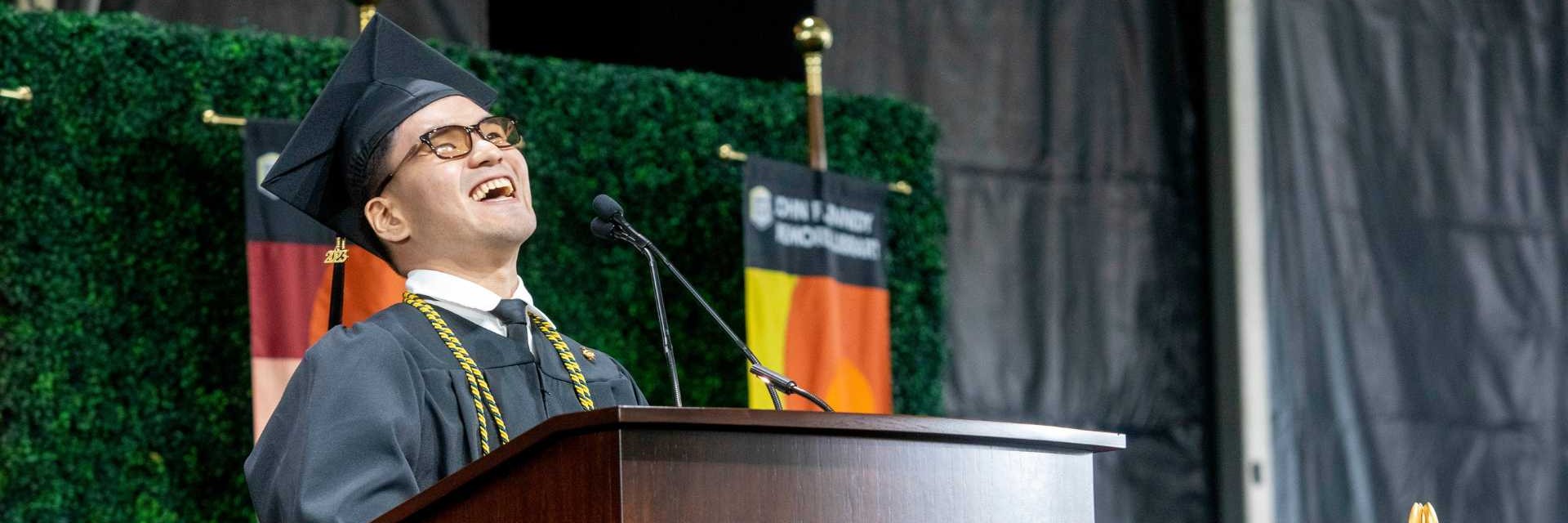Los Angeles, September 28, 2023– With pink conchas and black coffee in hand, students and faculty of the Department of Women’s, Gender, and Sexuality Studies gathered to hear “hot takes” on the $575.4 million dollar, domestic box office hit, “Barbie”, written by Greta Gerwig and Noah Baumbach. With a racially, sexually, and gender diverse panel, professors and students alike presented perspectives depicting their various positions on the movie and its story arc.
To some, the film highlighted the power of women and the plethora of ways that women and girls exist in society by considering the movie an ode to eras passed and childhood nostalgia. With a variety of Barbie characters such as weird Barbie played by Kate Mckinnon, President Barbie played by Issa Rae, pregnant Barbie played by Emerald Fennell, and lead protagonist Margot Robbie who plays stereotypical Barbie. These Barbie characters and their character traits and their character traits emphasize the ways women and girls can achieve anything they set their mind to while remaining unique, powerful, and connected by sisterhood.
To others on the panel, the film emphasized how much farther we as a society have yet to grow. Panelists highlighted the ways in which stereotypical Barbie seems to subvert assumptions of heterosexual norms by lacking interest in the attention-seeking Ken, played by Ryan Gosling. In fact, stereotypical Barbie is anything but stereotypical within the film, as stated by Professors on the panel. It was said that stereotypical Barbie’s indifference to Ken creates space for the multitudes of interpretations of Barbie's sexuality; because she is not, in fact, seeking his attention. Rather, creates space for viewers and Barbie lovers of various backgrounds to see themselves reflected in the film when stereotypical Barbie centers societal issues, her career, and even a ‘girl’s night every night’ mentality.
Folks on the panel touched on the significance of actor Kate Mckinon, the first openly gay female cast member on American late-night live television show, SNL, being casted as weird Barbie. This seemingly deliberate casting acted as a metaphor in the ways queer women are often ostracized and made to be pariahs in society and the film alike. For weird Barbie to have a love for lesbian staples such as Birkenstocks and live on the literal margins of Barbieland, was said to be yet another commentary on women’s sexuality. The depiction exemplifies the consequences for queer women when they deviate from subscribing to heterosexual norms or choosing themselves over men.Some panelist believed the film’s portrayal of “camp” and over-the-top theatrical performances of masculinity and femininity directly correlated to the film’s queer undertone.
Furthermore, some panelists believed that the film“missed the mark” due to stereotypical Barbie’s portrayal as the “epitome of womanhood”, implied by her protagonist role. While some women were represented by Barbie’s highlighted experience within a patriarchal system, women of color, as some panelists put it, “were not visible or fully actualized within the storyline”. In fact, some panelists felt that women of color were marginalized to background character roles and written into the story arc to be used as vessels to depict Barbie’s emotional labor and intellectual growth.
For president Barbie', played by Executive Producer, actress, and television producer, Issa Rae, to have such a minute role in the film’s storyline, made some feel as if Black barbies and representation of Black womanhood was an afterthought. A question was asked, “why didn't Greta Gerwig create space to co-produce with Issa Rae on this film, as opposed to making her a background character?” Many folks in the audience during the panel applauded and snapped their fingers emphatically in the name of authentic representation in the film.
Another point brought up by panelists on the “Barbie'' film, emphasized the ways that America Ferrera’s Latina character, Gloria, was used throughout the film as a voice of wisdom and education for stereotypical Barbie to evolve. Meaning, that when stereotypical Barbie is faced with reality, as some panelist put it, reality proved too much for Barbie; that it took a Brown, Latina woman to educate and enlighten stereotypical Barbie that reality, in fact, wasn’t equal for all genders. Participants on the panel then stated that stereotypical Barbie’s compulsion to act in the name of societal change within Barbieland only occurred after Gloria began explaining to stereotypical Barbie that her delusions of equality were in fact stunted by patriarchy.
As Barbie becomes educated and enlightened throughout the film, viewers witness Barbie’s journey to understanding the realms in which patriarchy exists and impacts those in and out of Barbieland. Audience members spectate for an hour and fifty-four minutes as Barbie makes an effort to work with her counterparts to understand and in turn inform those within Barbieland about the human reality of patriarchy. Still, with criticism and commentary, the Barbie movie has grossed $1.3 billion dollars globally. Shattering records of the highest grossing opening weekend and the largest opening for a female director ever. Bringing with it, conversations about patriarchy, gender, race and nostalgia for various viewers and fans, including faculty and students across the College of Arts and Letters, all eager to catch a glimpse of the world renowned- Barbie.

